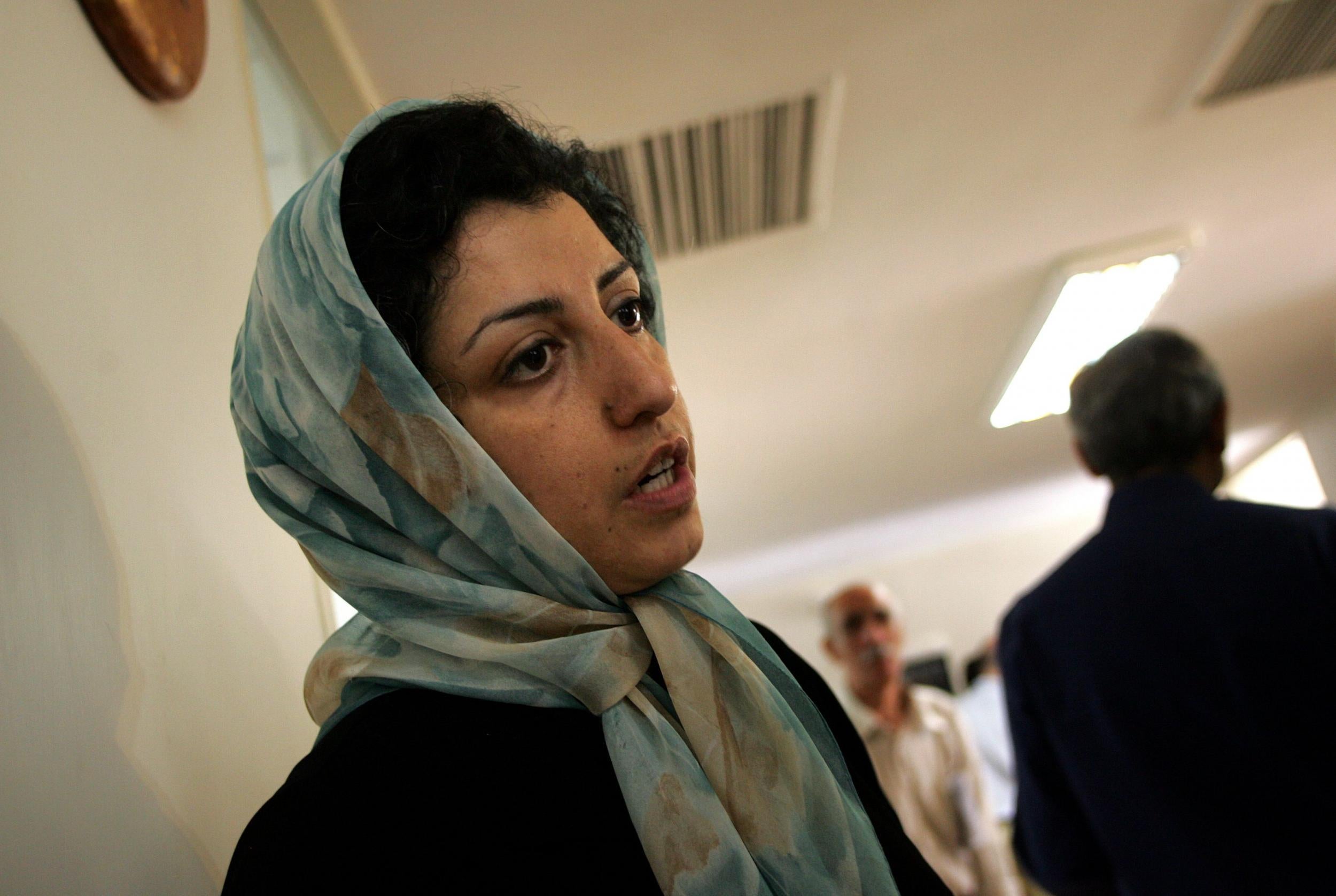The Independent's journalism is supported by our readers. When you purchase through links on our site, we may earn commission.
Narges Mohammadi: Iranian actress joins campaign to free critically ill human rights campaigner detained for 16 years
Mohammadi's peaceful activism has seen her imprisoned and told she must serve at least 10 years of her sentence. But a campaign set up in response is steadily growing

Your support helps us to tell the story
From reproductive rights to climate change to Big Tech, The Independent is on the ground when the story is developing. Whether it's investigating the financials of Elon Musk's pro-Trump PAC or producing our latest documentary, 'The A Word', which shines a light on the American women fighting for reproductive rights, we know how important it is to parse out the facts from the messaging.
At such a critical moment in US history, we need reporters on the ground. Your donation allows us to keep sending journalists to speak to both sides of the story.
The Independent is trusted by Americans across the entire political spectrum. And unlike many other quality news outlets, we choose not to lock Americans out of our reporting and analysis with paywalls. We believe quality journalism should be available to everyone, paid for by those who can afford it.
Your support makes all the difference.A leading Iranian actress has backed mounting calls for the release of a prominent anti-death penalty activist who has been sentenced to 16 years in prison for campaigning against the death penalty.
Narges Mohammadi is currently serving sentences for three charges related to her activism in Tehran's notorious Evin prison.
Human rights groups and campaigners say she is critically ill with an unidentified illness. Her condition has been likened to epilepsy in a report by The Guardian and is said to affect her muscle control.
Mohammadi, a mother of two from Zanjan, was arrested in May 2015 and convicted of “establishing and running the illegal splinter group Legam”, a campaign against the death penalty in Iran.
Her longest sentence of the three charges is 10 years, and it is this sentence that is related to her campaigning against the death penalty. In 2009 Mohammadi was arrested and sentenced to 11 years in prison, which was reduced to six years. She began serving the sentence in 2012 and was then released on bail in 2013, whereafter she continued her activism up until her arrest.
Hundreds of women have shared images of their hand with 'free Narges' written across their palms in a social media movement launched after her detention. About 300 women have sent similar pictures into the My Stealthy Freedom campaign led by anti-enforced hijab campaigner Masih Alinejad. On Tuesday, the campaign was bolstered when Iranian theatre actress Roya Mirelmi shared a picture of her own palm on Instagram with the hashtag #freenarges written across it.
Tara Sepehri Far, a researcher for the Middle East and North Africa Division of Human Rights Watch, told The Independent Mohammadi was served an “unjust” sentence because of her human rights activism and part in a campaign dedicated to reducing the alarming number of executions in Iran, which Amnesty International put at 977 just in 2015.
She said her health is being jeopardized by prison conditions.
“Mohammadi suffers from a serious neurological disease that makes the prison environment extremely dangerous for her. In 2012, when she was in prison for a different sentence related to her activism, authorities determined that she was not capable of serving the sentence due to her health and released her."
Philip Luther, Amnesty's Research and Advocacy Director for the Middle East and North Africa, condemned the decision to uphold her sentence following an appeal in September.
“By insisting that this harsh and appalling sentence is imposed for her peaceful human rights work, the authorities have laid bare their intent to silence human rights defenders at all costs.
“Narges Mohammadi’s conviction and sentence must be quashed and the authorities must order her immediate and unconditional release. We urge the EU to make these calls, too, and put the heightened repression of human rights defenders in Iran at the heart of their dialogue.”
Join our commenting forum
Join thought-provoking conversations, follow other Independent readers and see their replies
Comments